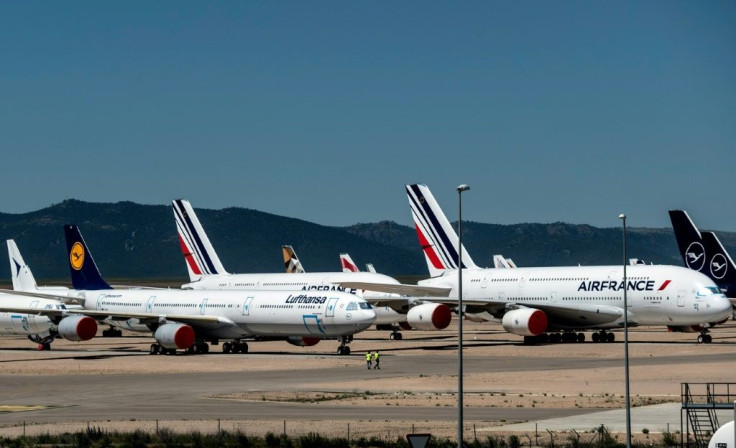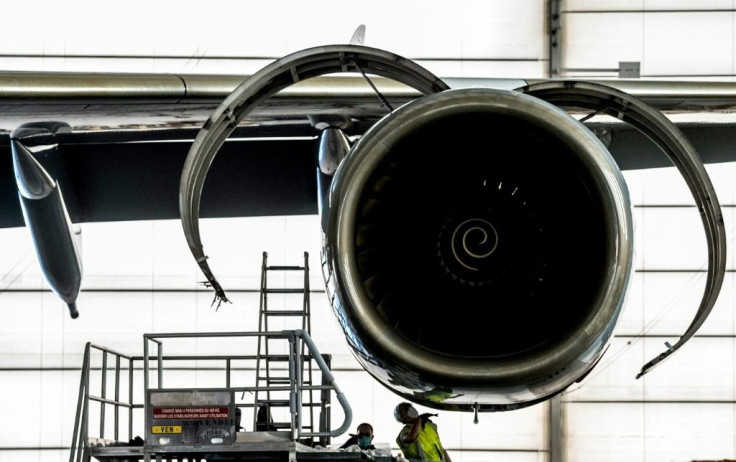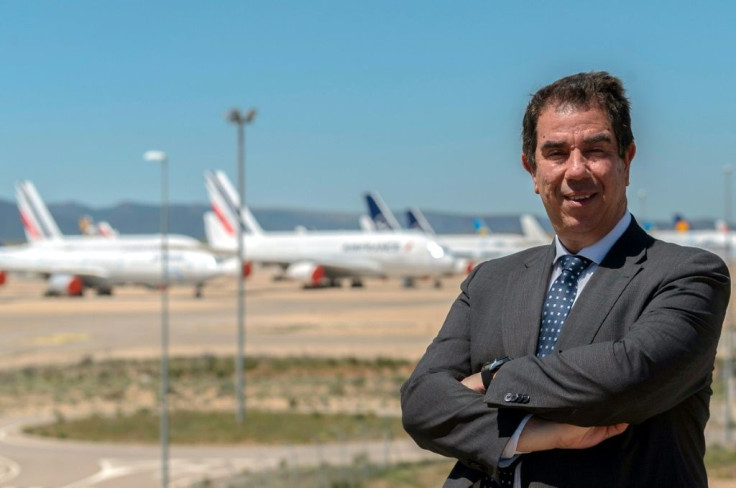Virus Is Good News For One Spanish Airport
Situated on a huge plain in Spain's east, Teruel airport is scarcely on a sunseeking tourist's radar.
Yet it is one of precious few airports positively flourishing during the coronavirus crisis which has dealt a crushing blow to the aviation industry and tourism.
The name of the game at this airport without passengers is not holidaymaking, however, but planes maintenance and recycling.
And with the COVID-19 pandemic having caused a mass grounding of aircraft business is booming.

On the tarmac sit around 100 planes under a blazing sun in what is Europe's largest industrial-aeronautical services hub on a 340-hectare (840-acre) site housing the continent's biggest aircraft parking platform.
They include nine Airbus A380, the world's largest passenger aircraft, as well as a Boeing 747.
Red tarpaulins protect the engines from dirt and birds who would nest inside as yellow-vested employees oil, replace and check parts.
"We are working in a global market," explains airport director Alejandro Ibrahim. The airport's client roster includes Air France, Lufthansa, British Airways, Iberia, Avianca, Etihad and China Eastern.
Never has the airport hosted so many aircraft since its 2013 opening. Maximum capacity of 125 could be reached inside a month compared to the 78 parked on the tarmac before the pandemic brought border closures and flight cancellations en masse.

"The service we offer our clients, which are aviation firms and leasing entreprises, has intensified owing to the current strong need for maintenance and long-term parking by specialised staff," says Ibrahim.
Work is meticulous. Simply being parked involves a executing a number of tasks on a daily, weekly, monthly, even quarterly basis.

The stated goal is that "when flights resume normally (the planes) are in a position to be able to do so," says Pedro Saez, director general of Tarmac Aragon, local incarnation of France's Tarmac Aerosave, a private enterprise which stores, maintains and recycles aircraft and oversees services at Teruel which is managed by a public consortium.
Founded in 2007, Tarmac Aerosave has French bases in Toulouse -- home to Airbus -- and Tarbes, also on the deep south. With Teruel, the three sites can accommodate 250 planes.
Teruel facilities include two hangars, one of them a substantial 6,000 square metres (65,000 square feet) for the largest planes.
Outside the hangar a clutch of planes are being refurbished, a process allowing recuperation of "94 percent of the aircraft's weight to re-use it in the aeronautical industry," explains Saez.
He lists what can be re-used -- engines, landing gear, computers, flight control, aluminium, steel, titanium to name but a few.
Teruel airport was designed from the outset for industrial purposes to take advantage of its location at 1,000 metres (3,300 feet) in a dry and sunny environment conducive to aircraft maintenance.
With few inhabitants in the vicinity there is the additional plus of little air traffic congestion "which allows aircraft easy access," notes Ibrahim.
This year, he expects revenues to rise 24 percent at an airport whose plane parking prices are more competitive than those of large commercial airports.
So positive is the current outlook that public investment to the tune of 25 millione euros ($27 million) is forecast to flow in over the coming two years, for projects including construction of a new hangar able to house two A380 jets as well as an expansion of parking capacity to allow future reception of 350 planes.
"We can allow ourselves to grow," says Saez, who has faith in "strong demand" for services in Tarmac in which European consortium Airbus and French firms Safran and Suez have capital stakes.
Ibrahim does not exclude extending future facilities to airline passengers but considers that would be a "residual" activity at an airport only to happy to have positioned itself on the right side of the aviation business line at a time when the sector generally is facing brutal headwinds owing to the virtual standstill brought about by the coronavirus.
"We didn't have them before, we don't today and so we are not affected by the current absence of passenger traffic," Ibrahim concludes.
© Copyright AFP 2024. All rights reserved.





















